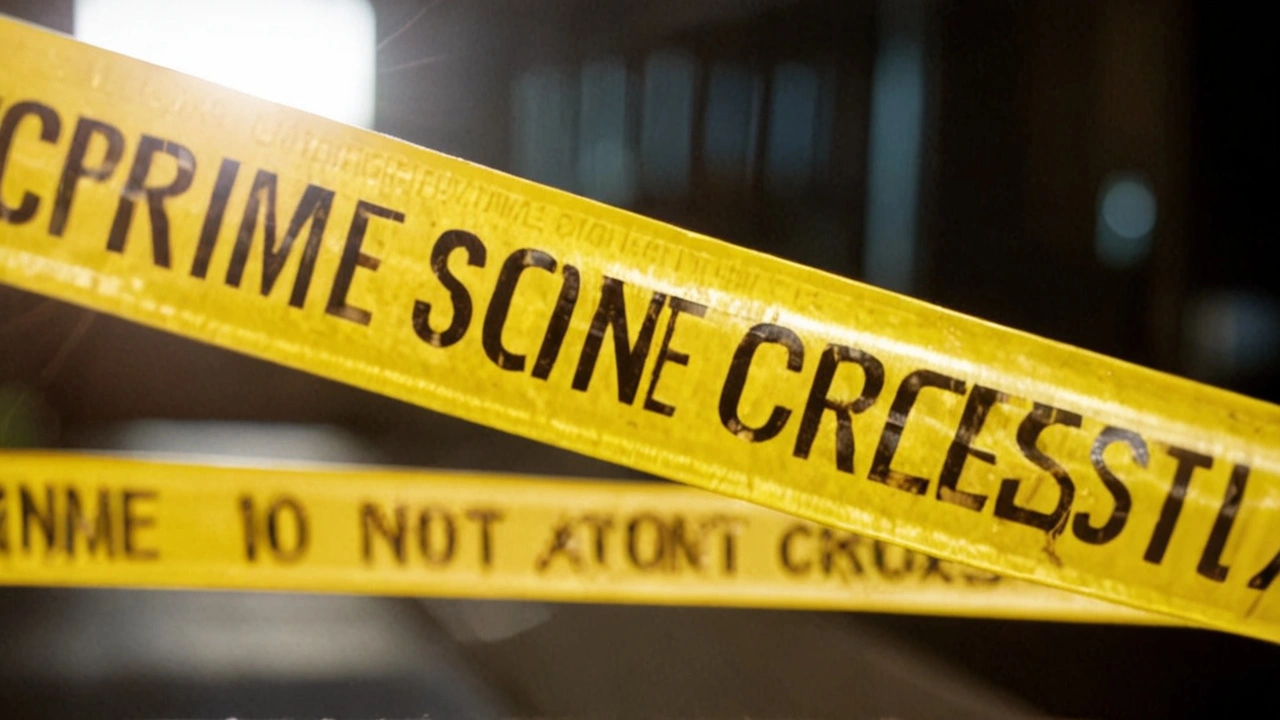DCI Probes Sale of Firearm Allegedly Linked to Tom Mboya’s Assassination
8 Jul, 2024The Directorate of Criminal Investigations (DCI) in Kenya has opened an inquiry into the sale of a firearm reportedly linked to the assassination of Tom Mboya, a notable former Kenyan Minister and influential political figure. This move follows revelations from a man who alleges that he received funds from prominent government figures to acquire three pistols. This shocking admission has put the spotlight back on Mboya's untimely death, which has long been shrouded in mystery and controversy.
Tom Mboya was assassinated on July 5, 1969, a murder that sent shockwaves through Kenya's political landscape. Mboya, known for his dynamic leadership and role in Kenya’s struggle for independence, was considered a rising star and a potential successor to former President Jomo Kenyatta. His death led to widespread public outcry and speculation about who might have wanted him dead, given his significant influence and ambitions.
New Revelation Sheds Light
The recent development comes as a man has stepped forward with claims that he was instructed by powerful officials within the government to secure three pistols. According to his statement, the funds provided were meant to facilitate the purchase of these weapons. While the identity of these high-ranking officials has not been disclosed, the implication is that there may be powerful individuals who were deeply involved in the plot, adding a dark and convoluted layer to this decades-old case.
DCI’s Renewed Efforts
The DCI, known for its rigorous approach to criminal investigations, has taken these claims seriously. They are now delving into the intricate details of the firearm's sale and its possible connection to Tom Mboya’s assassination. By tracing the origin and transactions related to these weapons, the DCI hopes to uncover any hidden connections and motivations behind the purchase. This could potentially lead to significant breakthroughs in understanding the real forces at play at the time of Mboya's death.
For years, the circumstances surrounding Tom Mboya's murder have remained a topic of much debate and speculation. Various theories have been proposed, ranging from political rivalry to ethnic tensions. However, no concrete evidence has been able to conclusively determine the true motive or the individuals orchestrating the murder. This new lead provided to the DCI could be the missing piece of the puzzle that might finally bring clarity to this long-standing mystery.

Public Reaction and Political Implications
Mboya's assassination had a profound impact on Kenya’s political scene. As a charismatic leader, his death created a vacuum and left many questions about the future direction of the country’s leadership. The new investigation has not only revived interest in Mboya’s life and legacy but has also stirred up public curiosity about the integrity of past and present government officials. Many Kenyans are watching closely as the DCI conducts its investigation, hoping that the truth will emerge and justice will be served for Mboya's family and supporters.
Given the sensitive nature of this case, the DCI is proceeding with caution. They are meticulously analyzing testimonies, financial records, and other pieces of evidence to ensure that their findings are substantiated and credible. The potential ramifications of uncovering a direct link between senior government officials and the assassination could have immense consequences for the political landscape, possibly leading to further inquiries and accountability for those implicated.
Historical Context and Significance
The murder of Tom Mboya is not just a tragic event in Kenya’s history; it is a turning point that influenced the nation’s political trajectory. Mboya was a visionary leader whose policies and advocacy for Pan-Africanism had garnered him international recognition. His role in promoting education and social reforms positioned him as a beacon of hope for many Kenyans, particularly the youth who saw him as a mentor and role model.
In the broader scope of African politics, Mboya’s assassination is often cited as an example of the challenges faced by reformist leaders on the continent. The suppression of such influential figures often raises questions about the dynamics of power, governance, and the lengths to which opponents will go to maintain control. The ongoing investigation, therefore, holds significance not only for Kenya but also for understanding the complex interplay of political forces in post-colonial Africa.
The Directorate of Criminal Investigations continues to call upon individuals with any pertinent information to come forward. They are leveraging modern forensic techniques and historical documentation to build a comprehensive picture of the events leading up to and following Mboya’s death. As the investigation unfolds, there is a growing sense of anticipation about the potential findings and their implications for historical justice.
The journey to uncovering the truth behind Tom Mboya's assassination is indeed a convoluted one. However, the DCI's renewed efforts bring a ray of hope that the mysteries of the past can be illuminated, offering some measure of closure for a nation that lost one of its most promising leaders under tragic circumstances.

 by
by